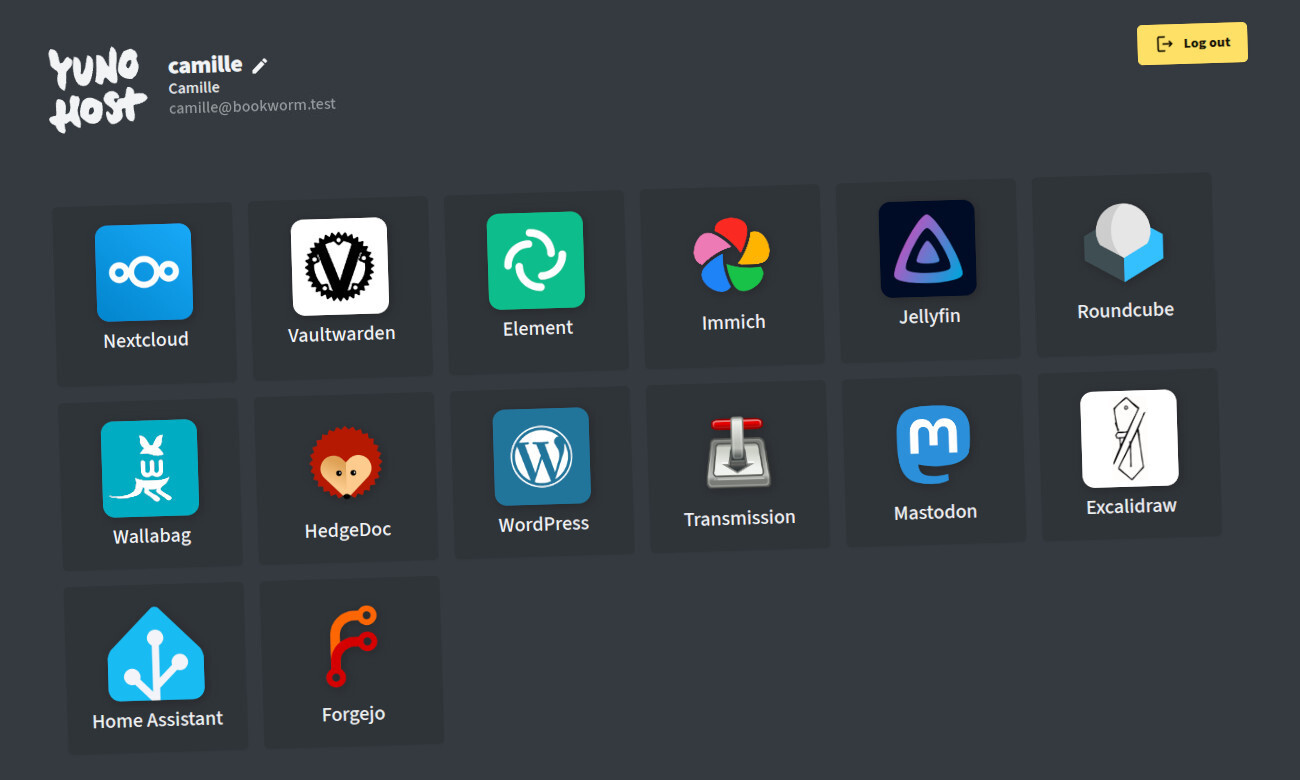- cross-posted to:
- selfhosted@lemmy.world
- selfhosted@lemmy.world
- cross-posted to:
- selfhosted@lemmy.world
- selfhosted@lemmy.world
I recently discovered yunohost, a French project for easy selfhosting. Does anyone have experience with that?
not myself, but my stepdad tried it with 2 decades of IT and linux sysadmin experience.
basically, it is great if you want to host like 2 or 3 standalone services on a pi to get into understanding how the basics of selfhosting work, but for homelabs and deep customization, you’re better off with docker compose on debian/ubuntu server.
Looks good. But I got burnt with CasaOS. Only App organizer I still use is dockge.
what do you meant with burnt? i thought its even easier than yunohost?
Burnt my fingers. It’s not enough freedom for changing compose settings. But that’s just my two cents.
thats true. when I tried it I even found it more difficult because of the limite. you must trust the scripts and if something does not work its a lot more complicated than setting it up by yourself.
+1 for dockge. But that’s something for later. Yunohost is a great way to get a feeling for selfhosting.
Elena Rossini, well known for her help in growing the Fediverse, raves about Yunohost, https://news.elenarossini.com/my-year-of-fediverse-explorations/. You should be fine using it.
@_elena@mastodon.social
Yes, it’s pretty good! I’m a DevOps engineer, and have experience with Ansible, Docker, etc, but I just couldn’t find time to deploy services the best way that I wanted™ for my personal server
So, even though it e.g. doesn’t even use Docker, yunohost really helped me start using the many services I wanted/needed, which otherwise might take e.g. a few hours to a couple of days for each of them to research and configure
So I have one “production” yunohost server, one “testing” yunohost server to test services that I don’t know if I’ll use yet (and I wouldn’t want them to interfere with production e.g. by using too many resources)
and one server without yunohost for mailu, Docker, traefik, etc, which I can use to deploy services the correct way™ as I figure out the services that I really use and find the time to migrate them one-by-one
Even when using yunohost, there are so many things to do after deploying a service (e.g. DNS, configure the server and client software), so it has been really useful to save time when deploying and configuring.
I think it gets you ~80% there, makes self-hosting accessible to everyone, and helps democratize the Internet a bit 💚 It’s more important to have many people setting up e.g. Immich or Nextcloud for their family photos, than only a few Linux people being able to learn how to do it perfectly (Docker/kubernetes high availability, reverse proxies, etc) and have everyone else to need to resort to using centralized services
I think time efficiency and stability are the two traits I am looking for. Looks like yunohost can offer those.
Des, it has, what most others lack: Single Sign In and many Apps.
Used for years, then moved into docker containers.
It’s pretty rad, especially as a domain controller.
Elena Rossini (@_elena@mastodon.social) is a journalist who’s gotten into the fediverse and self hosting with Yuno Host. She’s documented it on her blog. It’s worked out really well for her.
And they just boosted https://toot.aquilenet.fr/@yunohost/114431095460107487
Use it everyday. I self host a number of fedi services. It’s a great os.
Most of the apps are great, but there are a couple that are no longer maintained.
Nice as a starting point, but not enough features to make it worth it for advanced setups.
What do you miss?
Ability to properly work with apps outside the officially recommended list, to customize Docker containers etc.
At least from what I can recall from 1-1,5 years ago that I used it.
I had the same experience as many here. Great place to start out and if you don’t need or want more control then it’s perfect. I ended up on unraid and mostly use docker for apps.
For my vps i use yunohost and for selfhosting from Synology to unraid now. Yunohost is very time saving with subdomain and security Management.
I did some testing with it, because I believe more people should be able to self-host.
I like how it is implemented. It has good support for email. Many apps support SSO.
The critical part to me is how up-to-date applications are. I started a small project to automate version tracking, check out:
https://alexpdp7.github.io/selfhostwatch/app/nextcloud.html
; so for example, the YunoHost Nextcloud app does not lag much behind upstream. My intention with this is to let people see that they have been updating Nextcloud dilligently for two years; they might pull the plug tomorrow, but it’s a good track record.
(I’d like to add scrapers to other projects similar to YunoHost. My ultimate goal would be to be able to choose a list of apps you’d like to self-host, and see which projects like YunoHost carry the applications you want, and compare how they track updates.)
yunotryityourself?
Umbrel, Cosmos Cloud, Caprover, Yacht, Dokku, there’s a billion of these things.
Not exactly. Yunohost offers solution to host services openly to the internet thanks to simplified configuration of domains (and it even offers free domains) and reverse proxy. Also it has built in email server (not client, but the server). Apps are packaged in its own format and with unique configuration, it is not just some wrapper for Docker Conpose
Oh thats pretty neat. I know Cosmos Cloud had some interesting functionality similar to that, with Oauth support for everything. Though I’ve not tried it.
Big part of me loving selfhosting stuff is that I get to learn things a lot. I think it’s pretty amazing that these sort of projects exist but I’ll always use good ol’
$BASIC_SERVER_OS.Been using it for 10+ years. Love it.




